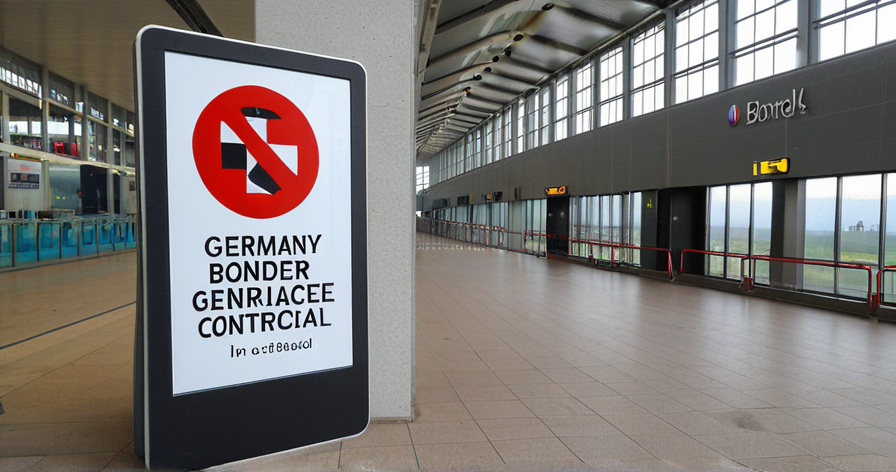Introduction
Germany’s recent decision to reintroduce border checks with the Netherlands has sparked significant debate, raising questions about migration policy, European unity, and the human cost of security measures. Since these checks began, German authorities have turned away 368 individuals at the border. This move not only highlights Germany’s approach to migration and security but also places a spotlight on the fragility of the Schengen Agreement, which has long been a symbol of European cooperation and freedom of movement.
What does this policy shift mean for Europe, for those directly affected, and for the future of a borderless EU? Let’s break it down.
The Schengen Zone Under Pressure
The Schengen Agreement is a cornerstone of European integration, allowing free movement across 27 countries without internal border controls. It represents more than convenience—it is a symbol of trust and unity among nations. However, the rise in irregular migration and growing security concerns have led several countries, including Germany, to reintroduce border checks, undermining this foundational principle.
Germany’s reinstatement of checks with the Netherlands follows similar actions taken by Austria, France, and Denmark in recent years. These moves indicate a trend toward prioritizing national sovereignty over collective agreements, raising concerns about the long-term viability of the Schengen system.
The Numbers: 368 People Denied Entry
Since the checks began, Germany has turned away 368 people. While the figure may seem relatively small in a country managing millions of travelers annually, it carries significant implications. Behind each number is a person—a traveler, a migrant, or an asylum seeker. These individuals may have been seeking safety, reuniting with loved ones, or simply traveling for work or leisure.
For those denied entry, the experience is more than just an inconvenience. It often represents a disruption to their lives and plans, with little clarity on what comes next. Many face the prospect of returning to uncertain or unsafe circumstances, highlighting the human cost of such policies.
Migration and Security: The Balancing Act
Germany’s government has justified the reintroduction of border checks as a necessary response to rising migration and security concerns. Officials argue that these measures are essential to prevent human trafficking, combat illegal immigration, and ensure public safety.
However, critics question the effectiveness of such measures. Migration experts point out that closing one border often redirects migration flows rather than stopping them. Moreover, the impact on legitimate travelers and the message it sends about European unity have raised ethical and political concerns.
From a broader perspective, these border controls reflect a tension between two competing priorities: the need for security and the commitment to uphold human rights and freedoms. Striking the right balance is a challenge not just for Germany but for the entire European Union.
The Impact on the Schengen Agreement
Reinstating internal border checks places a strain on the Schengen Agreement, which was designed to eliminate barriers between member states. Critics argue that these measures erode trust among EU nations and risk turning back the clock on decades of progress toward European integration.
If countries continue to prioritize unilateral actions over collective solutions, the future of Schengen could be in jeopardy. This would have far-reaching consequences, not just for migrants but for businesses, tourists, and anyone who relies on the ease of cross-border travel within Europe.
Human Stories Behind the Policy
While much of the discussion focuses on policy and statistics, it’s essential to remember the individuals affected. For migrants and asylum seekers, being turned away at the border can mean facing continued danger or persecution. For others, it might mean missing a critical family event or losing a job opportunity.
These stories underline the need for a more compassionate approach to migration policy—one that balances security with humanity. Blanket policies and rigid controls may offer short-term solutions but often fail to address the root causes of migration or provide sustainable outcomes.
Opinion: Europe at a Crossroads
In my view, Germany’s decision to reintroduce border checks with the Netherlands is a symptom of larger challenges facing Europe. While concerns about migration and security are valid, the approach of re-establishing borders risks undermining the very principles that make the EU a beacon of cooperation and freedom.
A better path forward lies in strengthening collective solutions. The EU needs a unified migration policy that addresses both the causes and effects of irregular migration. This includes investing in border management, offering legal pathways for migrants, and providing support to countries on the frontlines of migration flows.
Above all, the EU must remember its commitment to human dignity. Policies should not reduce individuals to statistics or treat migration solely as a security issue. Instead, they should reflect the values of solidarity, fairness, and respect for human rights.
Conclusion
Germany’s reintroduction of border checks with the Netherlands is a wake-up call for Europe. It highlights the need to find a better balance between security and freedom, national interests and collective goals, and immediate concerns and long-term vision. The 368 people turned away at the German border are not just numbers—they are a reminder of the human stakes in this ongoing debate.
As Europe grapples with these challenges, one thing is clear: the path forward requires courage, compassion, and a renewed commitment to the ideals that bind the continent together.
#Germany
Source – schengen.news: Germany Has Turned Away 368 People at Its Border With Netherlands Since Internal Checks Began










